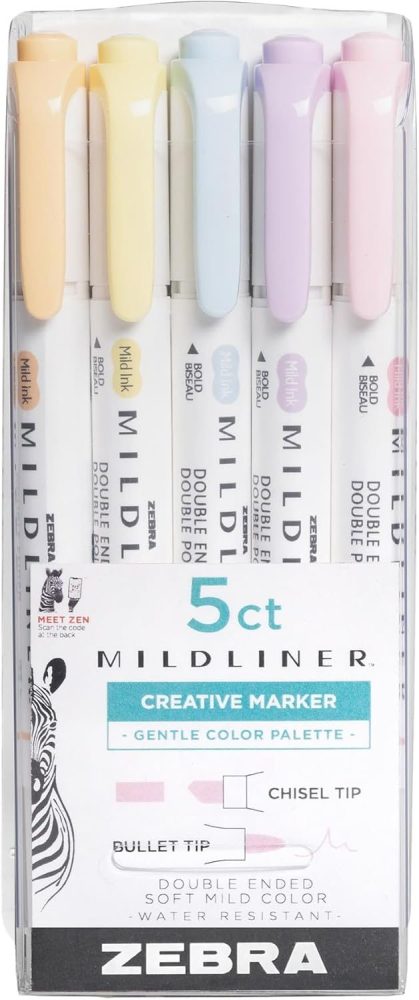This post may contain affiliate links. Read our disclosure to learn more.
In a world that often feels overwhelming, journaling has become a powerful tool for personal growth and mental clarity.
Whether you’re seeking a way to process emotions, set goals, or simply capture your thoughts, starting a journaling practice can be incredibly rewarding.
Here’s a detailed guide to help you begin your journaling journey and make the most out of this transformative practice.
What is Journaling?
Journaling is the practice of regularly writing down thoughts, feelings, experiences, and reflections. It can be done in a physical notebook, a digital document, or through various journaling apps.
Journaling serves as a personal space for you to express yourself, document your life, and engage in self-reflection.

Benefits of Journaling
Journaling comes with plenty of benefits that help improve everything from mental health to personal growth. Here’s a detailed look at the key benefits:
1. Mental Health Benefits
It helps reduce stress and anxiety by giving you space to freely express your emotions. Writing about your worries can help you organize your thoughts and make things feel a bit more manageable. Journaling is a simple yet powerful habit that can lift your mood and help you see things in a more positive light.
2. Self-Reflection and Personal Growth
Regular journaling helps you spot patterns in how you think and act, making it easier to understand yourself better. Looking back on past entries lets you reflect on how you’ve handled different situations and see where there’s room to grow.
3. Enhancing Creativity
Keeping a journal pushes you to get creative and provides a judgment-free zone to explore ideas. It’s not just great for artistic expression; it also encourages innovative thinking and strengthens problem-solving skills. By creative journaling, you open the door to fresh perspectives and new ideas you might not have thought of otherwise.
4. Improving Writing Skills
Regular journaling is a great way to sharpen your writing skills over time. The more you write, the more fluent and clear your writing becomes. It helps grow your vocabulary as you try to find the right words to express your thoughts and feelings, which boosts the overall quality of your writing. It’s an easy way to improve how you communicate and put your thoughts into words.
5. Tracking Progress and Accomplishments
Journaling helps with setting goals and tracking progress. Writing down your goals boosts commitment and motivation to achieve them. Journals allow you to record your progress, track your journey, and make adjustments along the way. By reflecting on your experiences, you can see how you’ve progressed in areas like health, education, relationships, and personal goals.
Journaling Must-Haves
How to Start Journaling
Starting a journaling practice can seem daunting at first, but with a few simple steps, anyone can begin to reap the benefits of this activity. Here’s a guide to help you get started.
1. Choosing a Medium
Physical Notebooks:
A lot of people love the experience of writing by hand. Physical notebooks come in all kinds of styles, sizes, and designs, so you can pick one that suits you. They offer a nice break from screens and can feel like a more personal way to journal.
Digital Journals:
Digital journaling offers convenience and accessibility. It’s easy to organize entries, search for specific topics, and include elements like photos and videos. Apps and software can also provide prompts and templates that can make your journaling experience even better.
2. Selecting a Format
Free Writing:
This involves writing whatever comes to mind without worrying about structure or rules. It’s a great way to let thoughts flow freely and can lead to unexpected insights.
Structured Prompts:
Using prompts can provide guidance and focus, especially for beginners. Prompts can be thematic (e.g., gratitude, goals) or specific questions (e.g., “What made you happy today?”). These 365 Journal Prompts for Beginners have been grouped into monthly themes, making them easy and fun to use daily.
Finding What Works Best for You:
Experiment with different formats to see what feels most natural and beneficial. Some people might prefer a mix of free writing and prompted entries, depending on their mood and needs.
3. Setting a Routine
Establishing a Regular Journaling Schedule:
Consistency is key to developing a journaling habit. Decide on a specific time of day to journal, whether it’s first thing in the morning, during lunch breaks, or before bed.
Finding the Right Time and Place:
Choose a quiet and comfortable place where you can write without interruptions. Having a dedicated journaling space can make the practice more enjoyable and effective.
4. Overcoming Common Challenges
Dealing with Writer’s Block:
When you don’t know what to write, start with a simple prompt or write about your day. Even listing things you’re grateful for or describing your surroundings can help get the words flowing.
Staying Consistent:
Setting reminders and incorporating journaling into your daily routine can help maintain consistency. Remember that it’s okay to miss a day—what’s important is to get back to it without guilt.
Tips for Effective Journaling
To make the most out of your journaling practice, consider these tips that can enhance your experience and maximize the benefits:
1. Be Honest and Authentic
Writing Truthfully:
Journaling is a private activity, so there’s no need to censor yourself. Be honest about your feelings, thoughts, and experiences. This authenticity can lead to greater self-awareness and personal growth.
Embracing Vulnerability:
Don’t be afraid to explore difficult emotions or uncomfortable topics. Allowing yourself to be vulnerable in your journal can provide emotional release and deeper insights.
2. Stay Open and Non-Judgmental
Avoiding Self-Criticism:
Your journal is a judgment-free zone. Write without worrying about grammar, spelling, or making sense. The purpose is to express yourself freely.
Embracing Imperfections:
Not every entry needs to be profound or well-written. Embrace the messiness and imperfections as part of the process.
3. Experiment with Different Styles
Trying Various Journaling Techniques:
Explore different types of journaling, such as bullet journaling, art journaling, or gratitude journaling. Each style offers unique benefits and can keep your practice fresh and engaging.
Mixing Writing with Other Forms of Expression:
Incorporate drawings, doodles, or collages into your journal. Visual elements can add another layer of meaning and make the practice more enjoyable.
4. Use Prompts and Inspiration
Utilizing Journal Prompts:
Prompts can provide direction and spark ideas when you’re unsure what to write about. They can range from simple questions to more complex topics.
Examples: “What are you grateful for today?” “Describe a challenge you overcame.” (Check out these 365 Journal Prompts for Beginners that have been grouped into monthly themes, making them easy and fun to use daily.)
Finding Inspiration from Books, Quotes, and Nature:
Draw inspiration from various sources such as favorite books, meaningful quotes, or observations from nature. These can provide fresh perspectives and ideas for your entries.
Additional Tips:
Set Realistic Expectations: Start with manageable goals, such as writing for five minutes a day. Gradually increase the time as journaling becomes a habit.
Reflect Regularly: Periodically review past entries to observe your progress and gain new insights. Reflection can enhance self-awareness and highlight growth.
Create a Comfortable Environment: Choose a quiet, comfortable space where you can write without distractions. Personalize your journaling space to make it inviting and conducive to reflection.
Be Patient: Journaling is a journey, not a destination. Be patient with yourself and allow your practice to evolve naturally over time.
Journaling is a powerful tool that offers numerous benefits for personal growth and mental clarity.
If you haven’t started journaling yet, now is the perfect time to begin. Grab a notebook or open a digital journal, and start writing. Don’t worry about perfection or having a clear direction—just let your thoughts flow.
Remember that it’s a personal and evolving process; there are no right or wrong ways to journal. What matters most is that it resonates with you and supports your well-being. Enjoy the process, and happy journaling!
YOU MIGHT ALSO LIKE: 50 Daily Affirmations for Self-Improvement and Personal Growth
Pin it for later!








Leave a Reply